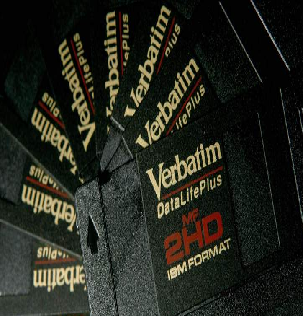The museum-ready system, which was introduced in the 1970s, is finally being upgraded because of "obsolescence concerns".
 A system used for controlling some of America's ballistic missiles and nuclear bombers is run from a 40-year-old computer which still uses floppy disks, a report has revealed.
A system used for controlling some of America's ballistic missiles and nuclear bombers is run from a 40-year-old computer which still uses floppy disks, a report has revealed.
The Government Accountability Office (GAO) says the machine sends and receives emergency action messages for US nuclear forces, and stores data on 8-inch floppy disks first introduced in 1976.
An upgrade to a secure digital alternative is due to be completed in 2017 to "address obsolescence concerns", according to a Pentagon spokeswoman.
"This system remains in use because, in short, it still works," Lt Col Valerie Henderson said.
The IBM Series/1 computer, which was released when Gerald Ford was in the White House, may only be fully replaced by the end of the decade.
The humble floppy disk is a distant memory for most modern computer users - immortalised as an icon to click on for saving documents after it was largely discontinued in the mid-2000s.
Investigators have criticised the US government for spending three times more on maintaining aging, museum-ready computer systems than it does on modernisation.
The GAO says the state invested $61.2bn (£41.6bn) into caring for old machines, some of which are more than 50 years old, as opposed to just $19.2bn (£13bn) on the "development and enhancement" of newer technology.
It warned the government "runs the risk of maintaining systems that have outlived their effectiveness" in its non-partisan report.
BY Sky News Photo: Sky News

Reactie plaatsen
Reacties